Chapter: 12th Commerce : Chapter 14 : Elements of Marketing : Marketing and Marketing Mix
Functions of Marketing
Functions of Marketing
Some of the most important functions of marketing are as follows:
The delivery of goods and services from producers
to their ultimate consumers or users includes many different activities. These
different activities are known as marketing functions. Different scholars have
described different functions of marketing as under:
i. G.B.
Giles described seven functions of
marketing: a. Marketing research b. Marketing planning, c. Product development
d. Advertisement and sales promotion e. Selling and distribution f. After sale
services and g. Public relations.
Another classification of marketing functions is
given by professors Clark and Clark, which is widely accepted by one and all.
Functions of marketing are classified into three types 1. Functions of Exchange
2. Functions of Physical Supply 3. Facilitating Functions.
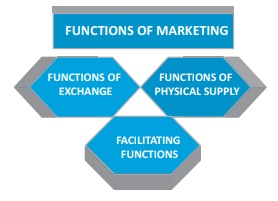
Functions of Exchange: Exchange refers to transfer
of goods and services for money’s worth. This process can be divided into (a)
Buying and assembling and (b) selling
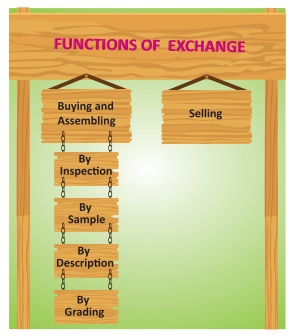
Functions of Physical Supply
There are two important functions under this
classification: i. Transportation ii. Storage and ware housing.
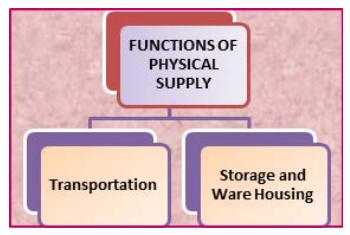
i. Transportation:
Transport means carrying of goods, materials and
men from one place to another. It plays an important role in the marketing. It
creates place utility by moving goods from the place where they are available
in plenty, to places where they are needed. Various types of transport are used
for carrying goods like a. Land transport, b. Water transport and c. Air
transport.
Innovation, Representation, Decision-making, and
Communication are the subsidiary functions of management.
ii. Storage and Warehousing:
a. Storage
Storage is another function of marketing process
and it involves the holding and preservation of goods from the time they are
produced to the time they are consumed. Generally, there is a time gap between
the production and consumption of goods. Therefore, there is need for storing
so as to make the goods available to the consumers and when they are required.
b.
Warehousing
Warehouses create time utility by storing the goods
throughout the year and releasing them as and when they are needed. Several
types of warehouses are used for storage of goods, which are as follows.
i. Private warehouses
ii. Public warehouses
iii. Bonded warehouses
Facilitating
Functions
There are the functions which help or facilitate in
the transfer of goods and services from the producer to the consumer. They are
not directly connected with the transfer of goods. Under this category the
following functions are included.
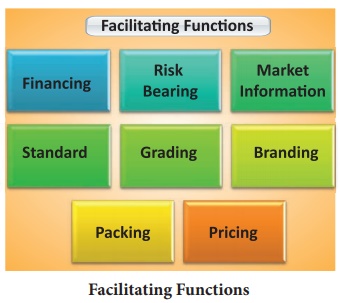
i.
Financing:
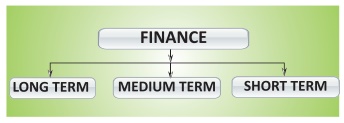
a. Long-term finance
b. Medium-term finance
c. Short-term finance
ii. Risk
Bearing:
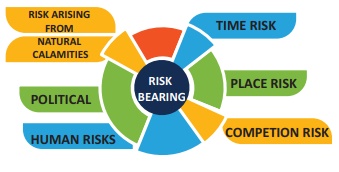
a. Time risk
b. Place risk
c. Competition risk
d. Risk of change in demand
e. Risk arising from natural calamities
f. Human risks
g. Political risks
iii. Market
Information: According to Clark and Clark market information means “all the facts, estimates,
opinions and other information used in marketing of goods”
iv. Standardization:
Standardization
means establishment of certain
standards based on intrinsic qualities of a commodity. The quality may be
determined on the basis of various factors like size, colors, taste, appearance
etc.
v. Grading:
Grading
means classification of standardized
products in to certain well defined classes.
vi. Branding:
Branding
means giving a name or symbol to a
product in order to differentiate it from competitive products.
vii. Packing:
Packing
means wrapping and crating of goods
before distribution. Goods are packed in packages or containers in order to
protect them against breakage, leakage, spoilage and damage of any kind.
viii. Pricing:
Pricing
is perhaps the most important
decision taken by a businessman. It is the decision upon which the success or
failure of an enterprise depends to a large extent. Therefore, price must be
determined only after taking all the relevant factors into consideration.
Related Topics